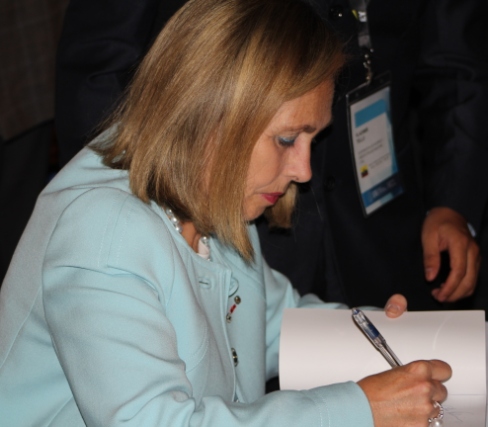
QUÉBEC CITY—What would the world look like if the reach of cooperatives extended to one-quarter of the population?
Cooperative leaders believe it would represent a major step forward in creating jobs, empowering citizens and building communities, and they hope to make it happen.
By 2030, the cooperative movement aims to represent 2 billion members, 4 million enterprises and account for 20 percent of global economic activity, a marked increase from the current level of 1.3 million members and 1.6 million enterprises.
“This is possible if all of us as cooperative business leaders decide to move forward, to work together. This is what we can do together,” said Monique F. Leroux, president of the International Cooperative Alliance.
Leroux outlined the goals at the International Summit of Cooperatives, held Oct. 11-13 at the Québec City Convention Centre.
The targets are part of a preliminary declaration adopted at the summit, which attracted nearly 2,950 participants from 116 countries under the theme of “Cooperatives: The Power to Act.”
The summit celebrated the cooperative business model with real-world success stories drawn from almost every sector of the economy.

“Our organizations, which some people have associated with the past, not only demonstrated that they were made for today, but that we are made also for tomorrow,” Leroux said.
In the draft declaration, cooperatives are on record as the first group to endorse and mobilize on behalf of the 17 sustainable development goals established by the United Nations.
Five U.N. ambassadors attended the summit, while international cooperative officials will present their action plan to the world body in the next few months.
In addition to increasing their raw numbers, co-ops are pledging to deal with issues such as food security by improving the productivity of small agricultural operations, among other steps.
Other areas in which co-ops vow to act in accordance with the U.N. goals are employment, access to health care and social services, poverty and financial inclusion, climate change and sustainable development.
“In a context marked by the resurgence of protectionism, the closing of borders and individual disillusionment, as much as the pursuit of globalization, a connectivity never before seen in the history of humanity and the rise of the collaborative and circular economy, the cooperative model, more than ever, is a response to the challenges posed and the opportunities that arise,” according to the declaration.
The summit also launched the Global Cooperative Development Platform as a way of achieving some of its goals.
The platform seeks to involve cooperative members at the international level to share achievements and identify courses of action.
“A Global Cooperative Development Platform does not have the aim to become a development agency, but to strengthen collaboration between cooperative development organizations and raise visibility and knowledge about the role co-operatives play in international development,” said Dame Pauline Green, recently retired president of the International Cooperative Alliance.
Steven Johnson is a staff writer at NRECA.